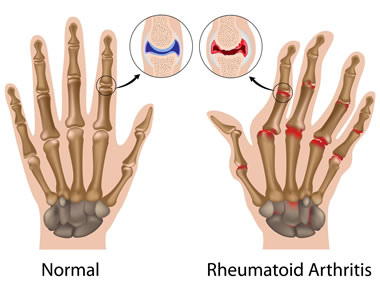Thinking about taking supplements to ease your arthritis symptoms? Before that, you may want to know that many supplements do not live up to their claims; hence, we will need to know what really works and what could actually be harmful and just be a waste of our money.
 Another thing we may want to take note of is that supplements are not regulated as closely as drugs hence we would need to buy wisely, i.e. buy from the reputable companies or health and pharmacy chain as they proved to have more stringent quality controls.
Another thing we may want to take note of is that supplements are not regulated as closely as drugs hence we would need to buy wisely, i.e. buy from the reputable companies or health and pharmacy chain as they proved to have more stringent quality controls.
Medical studies have shown that if we take supplements with appropriate doses it can be of great help to fit into our arthritis and joint health treatment program. Results have shown that for those having moderate rheumatoid arthritis [RA] and osteoarthritis [OA], the right supplements can help them from using high doses of prescription and over the counter medicines.
(What is Supplements? It refers to the vitamins, minerals, herbs, enzymes and animal extracts that we used to supplement the nutrition in our diet or to complement with the medicines prescribed by our doctor.)
However, before we embark to take any health supplements, it is advisable to talk to our doctor first in view that some supplements although are a source from the nature but just as medications, they are chemicals too, thus the health food supplements that we take can somehow interact either positively or negatively with our existing medications.
I have compiled 9 supplements that are backed by science for arthritis symptoms and 9 supplements that we must avoid that are harmful to our health.
Best for Osteoarthritis [OA]
Turmeric/curcumin (Curcuma longa)
It is an ingredient that can be found in many curries and often be used in ayurvedic medicine. It works
by blocking the inflammatory cytokines and enzymes. In a 2010 clinical trial, it was found that turmeric supplement can provide long-term improvement in pain and function in 100 patients with knee Osteoarthritis [OA].
Boswellia serrata (Indian frankincense)
Boswellic acids are the active components that possess strong anti-inflammatory and analgesic properties. They also work to prevent cartilage loss and inhibit the autoimmune process for rheumatoid arthritis [RA].
Capsaicin (Capsicum frutescens)
Capsaicin is the active, heat-producing component in chili peppers and works by reducing substance P, a pain transmitter. In a 2010 study published in Phytotherapy Research, it was found that joint pain can decrease by as much as 50 percent after three weeks’ of using 0.05 percent capsaicin cream. Studies have shown that capsaicin can improve grip strength in fibromyalgia too.
SAM-e (S-adenosylmethionine)
SAM-e is a natural analgesic and anti-inflammatory that may stimulate cartilage growth by signaling production of cartilage proteins. Studies have shown that SAM-e relieves Osteoarthritis [OA] symptoms as effectively as nonsteroidal anti-inflammatories (NSAIDs) and with fewer side effects and more prolonged benefit.
Avocado-soybean unsaponifiables (ASU)
It is a supplement that composed of one-third avocado oil and two-thirds soybean oil. It works by blocking pro-inflammatory chemicals that prevents deterioration of synovial cells which line joints. It may also help in regenerate normal connective tissue.
Avocado-soybean unsaponifiables has been studied extensively in Europe and is being routinely used to treat Osteoarthritis [OA]. Research has found that it helps in symptoms of hip and knee Osteoarthritis [OA] and can reduce or eliminate NSAID use.
Best for Rheumatoid Arthritis [RA]
Ginger (Zingiber officinale)
Ginger has been used in Asian medicine for centuries and is well known for its anti-inflammatory properties and has the effect similar to or better than conventional pain relievers such as ibuprofen and COX-2 inhibitors.
Fish oil
It refers to the oil from cold-water fish such as herring and salmon that have a rich source of omega-3 fatty acids EPA and DHA. Omega-3s are easily converted by the body into powerful anti-inflammatory chemicals called resolvins to block the inflammatory cytokines and prostaglandins.
GLA (gamma linolenic acid)
This is an omega-6 fatty acid found in some plant-seed oils, including borage, evening primrose and black currant. Our body will convert GLA into anti-inflammatory chemicals. It was reported in a 2005 trial, 56 Rheumatoid Arthritis [RA] patients have shown significant improvement in joint pain, stiffness and grip strength. Studies have shown that a combination of evening primrose oil and fish oil will reduce the need for conventional pain relievers.
Cat’s claw (Uncaria tomentosa)
Cat’s claw is an anti-inflammatory that proved to inhibit tumor necrosis factor (TNF), a target of powerful Rheumatoid Arthritis [RA] drugs. Cat’s claw also contains compounds that may benefit the immune system.
The foregoing 9 supplements are backed by science that is good for arthritis and healthy joints; however, all supplements must be used with care with the following 9 supplements not to be used at all since they are harmful, i.e. poisonous that has serious side effects on our health which caused toxin, allergic reactions, paralysis, heart palpitation, acute pain, kidney and liver damage and so on.
Supplements to Avoid
- 5-HTP (5-hydroxytrytophan)
- Arnica (Arnica Montana)
- Aconite (Aconitum napellus)
- Adrenal, spleen, thymus extracts
- Autumn crocus (Colchicum autumnale)
- Chaparral
- GBL (Gamma-butyrolactone)
- Kombucha tea
- L-tryptophan
Best,
Tan Kok Hui
Nutrition Made Simple, Life Made Rich







